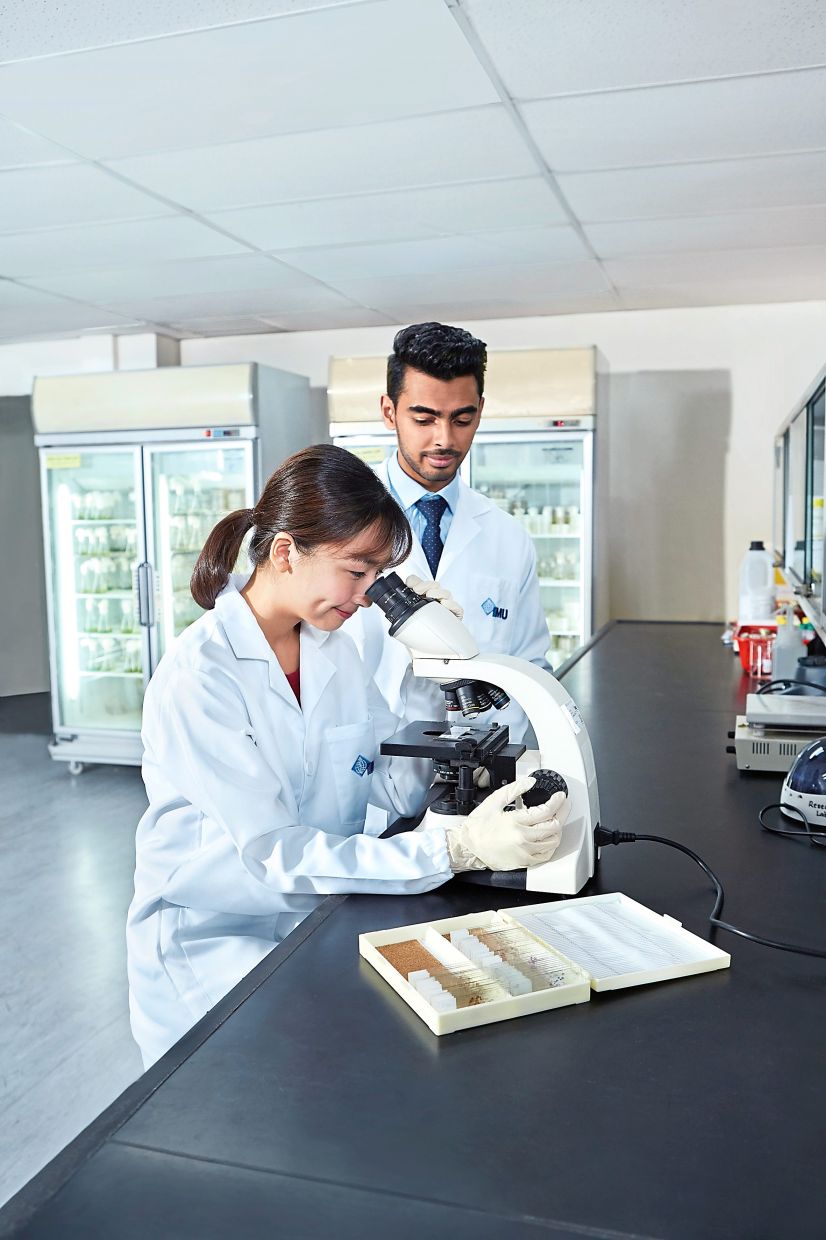FROM Dr Sheldon Cooper’s obsession with string theory in the popular comedy series Big Bang Theory to the reboot of ‘90s science series Quantum Leap, the world of scientific research is subject to many misconceptions.
In reality, there is a grain of truth behind many of these ideas. In addition to hours spent analysing data, researchers also spend a considerable amount of time in the field to learn more about their chosen area, seeking answers to many questions that science has yet to answer.
In fact, the most beautiful and unique thing about the world of research is that expertise is valued over competition. This creates a collaborative spirit that paves the way to working with the best minds in their respective fields, said seasoned academic Prof Datuk Lokman Hakim Sulaiman, International Medical University (IMU) research pro vice-chancellor and Institute for Research, Development and Innovation (IRDI) director.

For scientists with a passionate interest, this can take them far afield. One such example involves an intrepid team from IMU – which embarked on an expedition to the Antarctic to better understand the delicate ecosystem of the vast, ice-covered continent – led by the late Prof Chu Wan Loy, a passionate researcher with a keen interest in polar algae.
Far from the fanciful realms of science fiction, the knowledge gained from research has valuable applications in real life.
For the arctic research team, their ongoing observations and carefully-gathered data will help to shape future policy discussions on the impact of human activity and global warming, as climate change has impacted the Antarctic peninsula more rapidly than other parts of the world.
In recognition of the team’s efforts in this area, Dr Wong Chiew Yen, from the applied biomedical sciences and biotechnology division, received the Medal for Polar Education and Communication from Yayasan Penyelidikan Antartika Sultan Mizan at its 10th anniversary celebration, with Prof Chu receiving the Medal for Excellence in Antarctic Research posthumously.
Closer to home, the university helped to develop the Ministry of Health’s nationwide dengue forecasting system. Known as the ‘Dengue forecasting MOdel Satellite-based System’ or D-MOSS, it helps to predict outbreaks six months in advance, allowing local authorities to plan for timely intervention.
In the coming years, IMU will participate in an ambitious research project to study the development of diabetes and its complications to create a predictive model to aid in screening and preventive measures.
These projects – a drop in the ocean in the world of research, which sees dozens of studies, innovations and findings released daily across the globe – offer insights into IMU’s active involvement in research, which are overseen by IRDI.
Research can take years, admits Prof Lokman. And sometimes it does not bear fruit. While this means starting all over again, that does not mean the effort is wasted. Just like Thomas Edison, each unsuccessful attempt at creating the lightbulb merely paved the way for his eventual success.
Research is defined as “the systematic investigation into and study of materials and sources to establish facts and reach new conclusions”.
Expounding on this, Prof Lokman explained, “Research is important to answer questions and to gain understanding for the many things that are yet to be explained. This includes finding cures or better ways to treat and prevent existing diseases. In essence, medical research contributes towards the betterment of health for the public.”
Research also hones the scientific mind, therefore IMU places great value in what the research experience can teach its students.
At the university, every student, including undergraduates, partakes in supervised research projects and must defend their project to the Joint Committee on Research and Ethics – a learning experience they may not have at other universities, he pointed out.
Furthermore, excellence in the field of research enables learning institutions to demonstrate the quality of teaching, building a reputation that attracts the best minds for collaboration.
“IMU is a small institution compared to public universities, however, we are very proud to produce quality research output, with a high number of citations, especially in the area of infectious diseases.
“This is validated in a published report on research performance, ‘Malaysia: Knowledge Destination for Research Excellence’, where we had the honour of achieving the highest field-weighted citation impact score of 3.5 for international collaborative research, against other well-known local institutions.
“With the global average score of only 1.0, this indicates the quality of our research is well-recognised by academicians, and this is very fitting – after all, a university without research is not a university,” said Prof Lokman.
For more information, visit IMU’s website at www.imu.edu.my or its blog at http://imunews.imu.edu.my.





